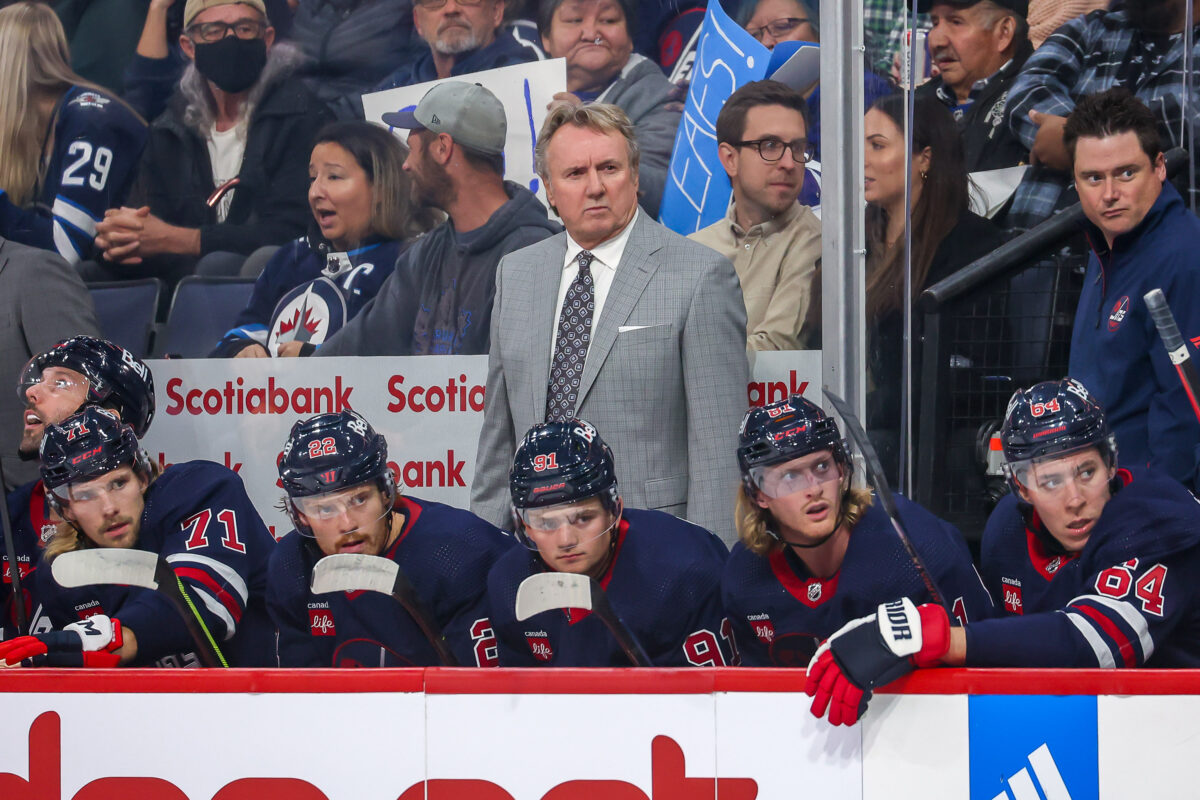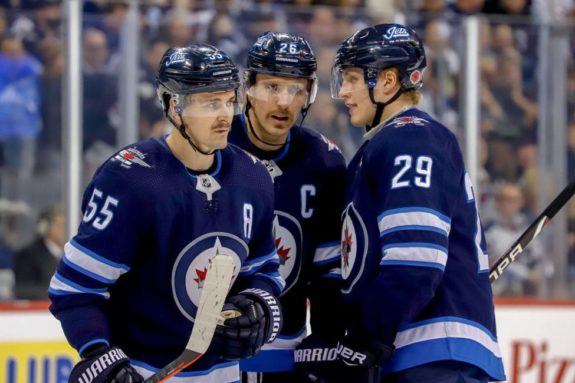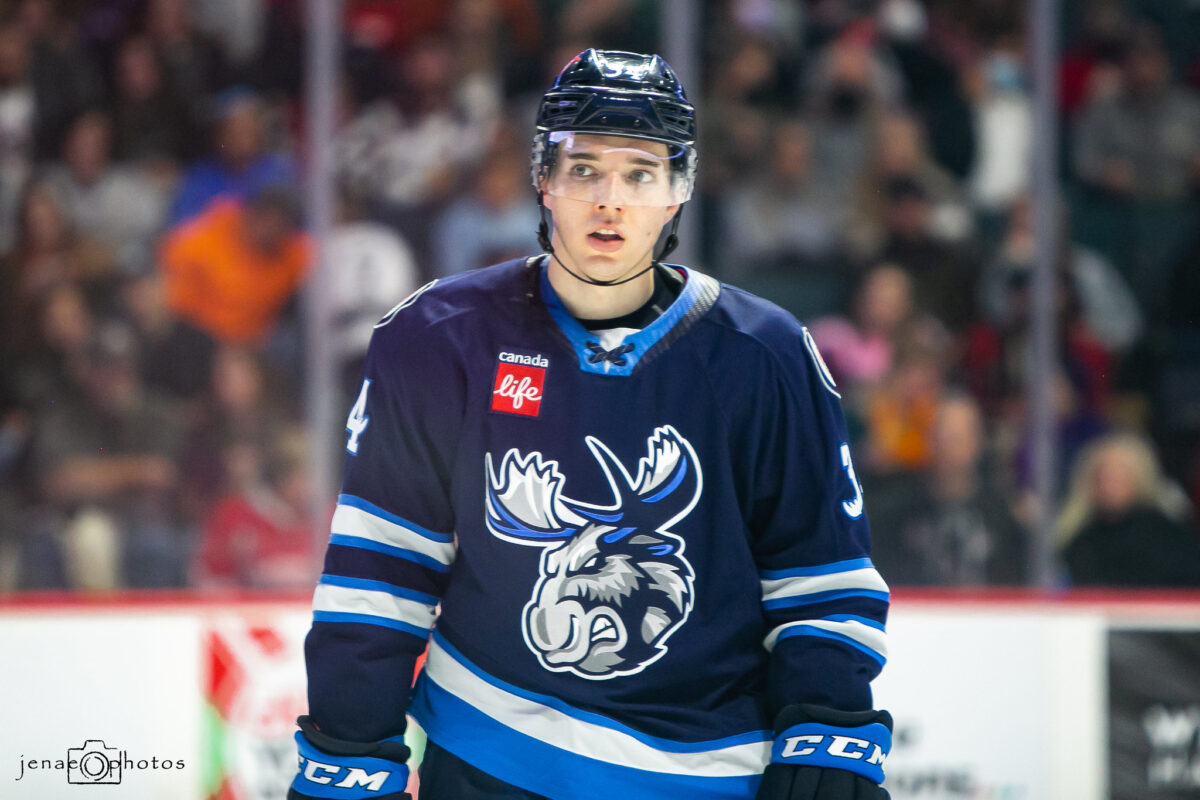Culture. It’s a word thrown around a lot in sports but is so hard to build. You need everyone in the locker room to buy into an ideology, whether it be the players, coaches, management, or even the training staff. But how can you really build culture? Leaders are important, but soldiers are equally vital.

What’s so fascinating about the Winnipeg Jets is the culture that they’ve built since their return to the NHL. Although many players who come out of Winnipeg say it’s a great place to live and play (like Nino Niederreiter), there are others who don’t speak fondly of their time in the Chilly City (like Cody Eakin and Kevin Hayes).
Jets’ Country Club Environment
For the past few years, rumblings around the hockey world have suggested that the Jets’ locker room is “toxic.” Both former captain Blake Wheeler and Mark Scheifele have been at the forefront of those rumours. Before he was stripped of the captaincy, Wheeler served as the team’s leader for seven years. It was as if he and Scheifele were the “top dogs” and everyone else had to fall in line.
There wasn’t much leadership from the two, who were deemed the true leaders of the team. The fact is, the game goes on, and young players are an important part of a team’s evlolution and long-term success. The Jets’ supposed “top dogs” did not help elevate the youth one bit.

Look at Patrik Laine. In Laine’s first two seasons with the Jets, there’s no argument he was a star. He represented the city, was among the league’s most prolific goal scorers, and even wrote an article talking about how much he loved Winnipeg. It seemed like a match made in heaven. Along the way, though, something changed. The vibe around the Jets and Laine started to sour.
When Laine got traded to the Columbus Blue Jackets in 2021, a Finnish reporter named Pekka Jalonen of Iltalehti (Evening News) stated that Laine clashed primarily with Wheeler and Scheifele. The report suggested that Wheeler felt threatened by Laine’s quick ascension, while Scheifele made it clear he only wanted to play with Wheeler.
After the trade, Wheeler expressed his regret at how he handled the situation. “Maybe I could have communicated a little better, instead of being frustrated,” he said. Scheifele, on the other hand, had no comment.
Lack of a Pathway for Jets’ Youth
Murat Ates of The Athletic pointed out last season that both Wheeler and Scheifele hardly had a presence with Winnipeg’s young players. “…at practice when I watch veteran players working with youth, those veterans are mostly Paul Stastny, Brenden Dillon, Nate Schmidt, and Adam Lowry, and not Wheeler or Scheifele” (from ‘Jets culture issues? Trading veterans? Mailbag,’ The Athletic, May 25, 2022). Those are damning words about two players who not only serve such vital roles to the team but also have solid working relationships with management.
Related: 3 Jets Trade Partners for Connor Hellebuyck
Winnipeg has done a pretty solid job of drafting young talent, but you’d hardly know it, given how little their top prospects play in the NHL. In the American Hockey League, the Manitoba Moose had a legitimate defensive core with Ville Heinola, Declan Chisholm, Leon Gawanke, and Johnathan Kovacevic. During training camp, Kovacevic was waived and claimed by the Montreal Canadiens, where he had a wonderful rookie season with three goals, 12 assists and a plus-3 rating.

In Heinola’s case, many believed he was worthy of a roster spot, but the 22-year-old has spent most of his pro career in the AHL. Chisholm has only played in two NHL games while registering 73 points in his past two seasons with the Moose.
Recently, Gawanke pulled no punches talking about his former organization. He told a German news outlet, Kicker, that he has no intentions of returning to Winnipeg, “I’m definitely not going another year there,” he said. “You never accept something like that if you perform year after year and then sacrifice yourself and aren’t even rewarded.” Gawanke was one of the more efficient defensemen, scoring 20 goals last season, and never had a chance to suit up for the Jets. Now, that bridge has officially been burnt, with Gawanke signing with Adler Mannheim in Germany.
“No Pushback”
Oh, the two words that sent shockwaves across the province of Manitoba – “no pushback”. Head coach Rick Bowness called out the Jets for not pushing back against the Vegas Golden Knights in their first-round playoff series in 2023. A feeling, he admitted, that had been simmering since February.
Bowness has coached for a long time and is very well respected. Players consistently feel like they can go to him when they have a problem. So, when Wheeler went to the press on clean-out day and wondered why Bowness didn’t address those feelings to the team, it was awfully confusing.
Bowness’ reputation precedes him, so we have to assume that he had brought that up once or twice. Accountability has always been a question, and it’s fascinating to see the only time the team actually showed a semblance of pushback was on cleanout day. Does the team really need a tongue-lashing in front of cameras to wake up? Well, it’s too late now because it seems more and more likely that the team will look drastically different next season.
What is Really Happening with Jets Management?
Jets general manager Kevin Cheveldayoff is notorious for keeping things close to the vest, spewing out cliche after cliche to answer the public, which didn’t necessarily leave Jets fans hopeful for what’s next. Declan Schroeder and Hunter Tycholis of The Hockey Writers have both done a marvellous job detailing Cheveldayoff’s complacency and negligence toward the task at hand.
With all of Cheveldayoff’s mishaps, he does have an incredibly tough job. Winnipeg isn’t the most glamorous of free-agent destinations. More than half of the players who have no-trade clauses in their contracts list Winnipeg near the top. So, with all those hurdles, Cheveldayoff is forced to get creative to acquire new talent.
Jets owner and True North CEO Mark Chipman is as loyal as they come, and the thought of moving on from Cheveldayoff doesn’t exactly tickle him. But there’s a lack of understanding about what fans are feeling. In hopes of generating more season-ticket sales after the pandemic, the Jets launched a minute-and-a-half campaign “Forever Winnipeg” asking if “Winnipeg is an NHL city.” You can imagine the ire of fans, especially seeing their team nearly blow their season away.
Instead of feeling encouraged to buy tickets, Jets fans felt threatened – and considering the history of pro hockey in Winnipeg, the last thing they want to feel is threatened. Ever since the move back to Winnipeg, the Canada Life Centre has consistently sold out. They may rank low in league attendance numbers, but it’s the smallest arena in the league (after the Arizona Coyotes’ temporary home) – what do you expect?
There’s no accountability from management or players, so why should fans feel obligated to purchase season tickets for thousands of dollars? When it’s all said and done, Chipman must look in the mirror and understand that he’s inadvertently created this environment and culture. The city should forever be in debt to him for his efforts to bring NHL hockey back to Winnipeg, but the business is a cold game. Even though a regime change is needed, based on recent history, that probably won’t happen, and the status quo will continue.
